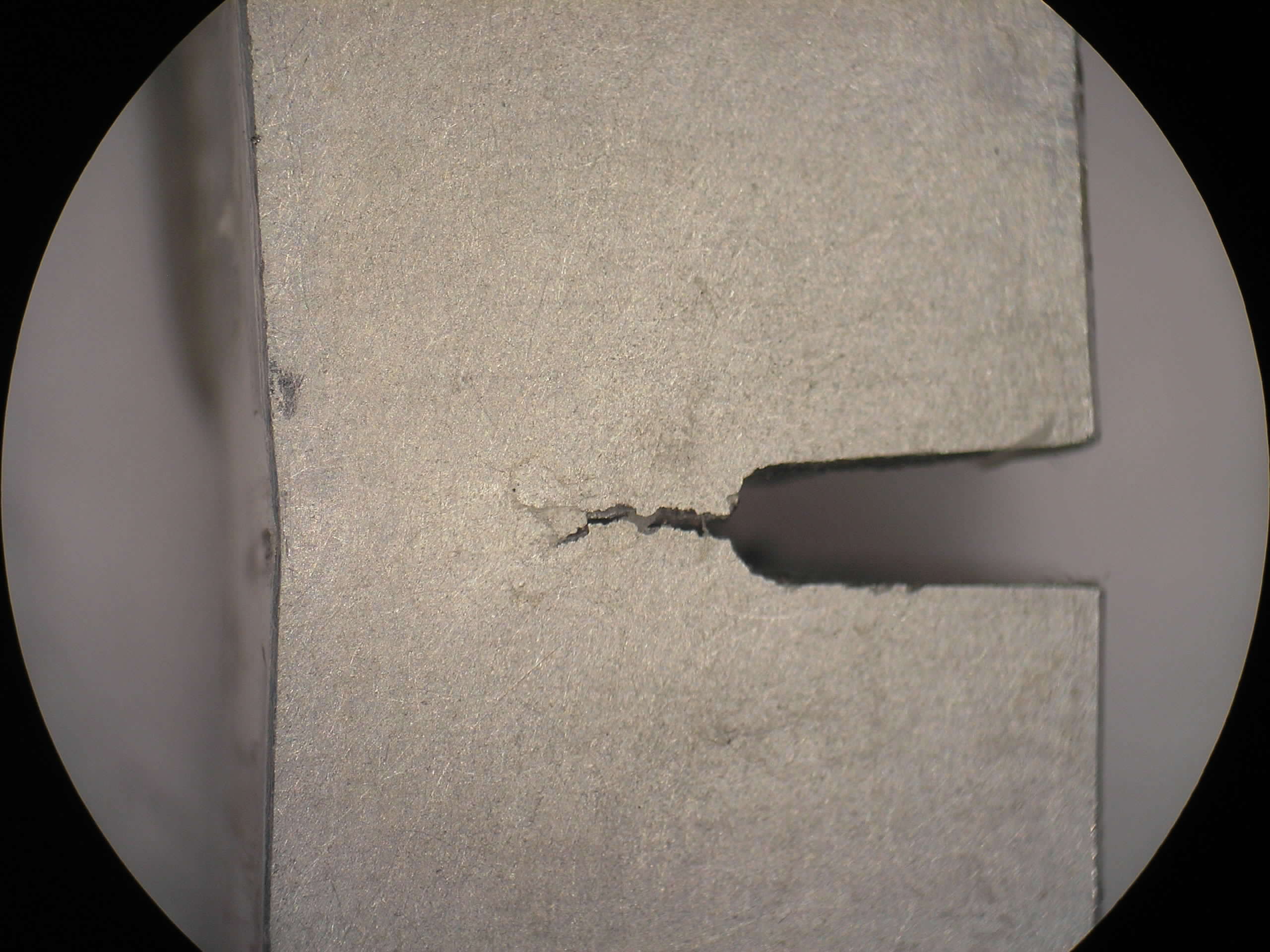ISO 15114 Interlaminar Shear Strength Testing
The ISO 15114 standard provides a comprehensive framework for testing interlaminar shear strength, which is crucial in the design and quality assurance of composite materials used in aerospace, automotive, and other high-performance industries. This test assesses how well different layers within a composite material resist relative sliding between them when subjected to shear forces.
Interlaminar shear strength testing is essential because it helps engineers predict how their products will perform under real-world conditions where stresses are applied orthogonally to the fiber orientation. For instance, in aerospace structures, this type of failure can occur due to impact or fatigue loading. Understanding these strengths allows manufacturers to optimize designs for both safety and performance.
The testing procedure involves preparing specimens according to ISO 15114 guidelines, which specify dimensions and preparation methods that ensure consistent results across different labs. Specimens are then subjected to controlled shear forces until failure occurs. The force at which failure happens is recorded and used as the interlaminar shear strength value.
Instrumentation plays a critical role in this process; high-precision testing machines equipped with strain gauges or load cells provide accurate measurements of applied loads during the test. Software systems automate data collection, processing, and analysis, ensuring reliable results every time.
Compliance with ISO 15114 not only ensures that your product meets international quality standards but also enhances confidence among customers who rely on these materials for critical applications. By demonstrating adherence to this standard, you can gain a competitive edge in the market by showcasing your commitment to excellence and reliability.
In addition to meeting regulatory requirements, conducting ISO 15114 tests offers several other benefits:
- It provides valuable insights into material behavior under shear loading conditions.
- Promotes consistent quality across production batches.
- Supports continuous improvement efforts in R&D projects aimed at developing new composite materials or improving existing ones.
For organizations looking to stay ahead of the curve, investing in ISO 15114 interlaminar shear strength testing is an essential step towards ensuring long-term success. It allows companies to make informed decisions about material selection and process optimization based on empirical evidence rather than assumptions.
Why Choose This Test
Selecting the right test method for evaluating interlaminar shear strength in composite materials is critical for ensuring accurate results that reflect real-world performance. Among various available options, ISO 15114 stands out due to its rigorous methodology and wide acceptance within industries where structural integrity is paramount.
One key advantage of using ISO 15114 is the standardized approach it provides. By following this international standard, laboratories can ensure consistent results regardless of location or facility differences. This consistency builds trust between suppliers and end-users by providing a common language for discussing material properties.
Another significant benefit lies in its ability to identify potential weaknesses early on in the development process. Through detailed analysis provided by ISO 15114 tests, engineers can pinpoint areas needing improvement before full-scale production begins, saving time and resources while enhancing overall product quality.
Furthermore, compliance with this standard opens doors for international collaboration and trade opportunities since many countries recognize and require adherence to such standards. This global acceptance fosters innovation by encouraging cross-border research collaborations that could lead to breakthroughs in composite technology.
Lastly, choosing ISO 15114 means meeting stringent quality assurance criteria which ultimately contributes towards building a reputation for reliability among stakeholders. In today’s competitive market, maintaining high standards is not just advisable but necessary for sustaining long-term relationships with customers and partners alike.
Quality and Reliability Assurance
- Data Accuracy: ISO 15114 ensures precise measurement of interlaminar shear strength by specifying exact specimen dimensions, loading conditions, and environmental factors that influence test outcomes. This precision helps in identifying true material properties rather than variability due to external variables.
- Reproducibility: The standardized procedures outlined in ISO 15114 guarantee consistent results across multiple trials conducted by different operators or facilities. Reproducible data enhances confidence in the testing process and facilitates better decision-making regarding material specifications.
- Compliance Verification: Adherence to this standard allows manufacturers to verify compliance with relevant regulations governing composite materials used in specific applications like aircraft manufacturing or automotive engineering. Meeting these regulatory requirements builds trust between industry players and regulators alike.
The robustness of ISO 15114 lies in its ability to deliver accurate, reproducible, and compliant results every time. These attributes are vital for maintaining quality standards throughout the supply chain and ensuring that end products meet expected performance levels.
Competitive Advantage and Market Impact
- Innovation Driver: By staying updated with ISO 15114 requirements, companies can leverage cutting-edge technologies to improve their manufacturing processes. This proactive approach allows organizations to stay ahead of competitors by continuously enhancing product quality.
- Premium Brand Perception: Demonstrating commitment to high-quality materials through compliance with international standards like ISO 15114 enhances brand perception among consumers and industry professionals alike. A reputation for reliability attracts more customers seeking trusted suppliers in demanding sectors.
- Market Expansion Opportunities: Meeting specific standards such as those prescribed by ISO 15114 can open up new markets where regulatory compliance is a key factor for entry. Expanding into international territories where these standards are recognized broadens business horizons significantly.
In summary, embracing ISO 15114 interlaminar shear strength testing offers numerous advantages that contribute to sustained growth and profitability in the materials industry. From fostering innovation within R&D departments to establishing premium brand reputations abroad, this standard plays a pivotal role in driving competitive advantage and market impact.





